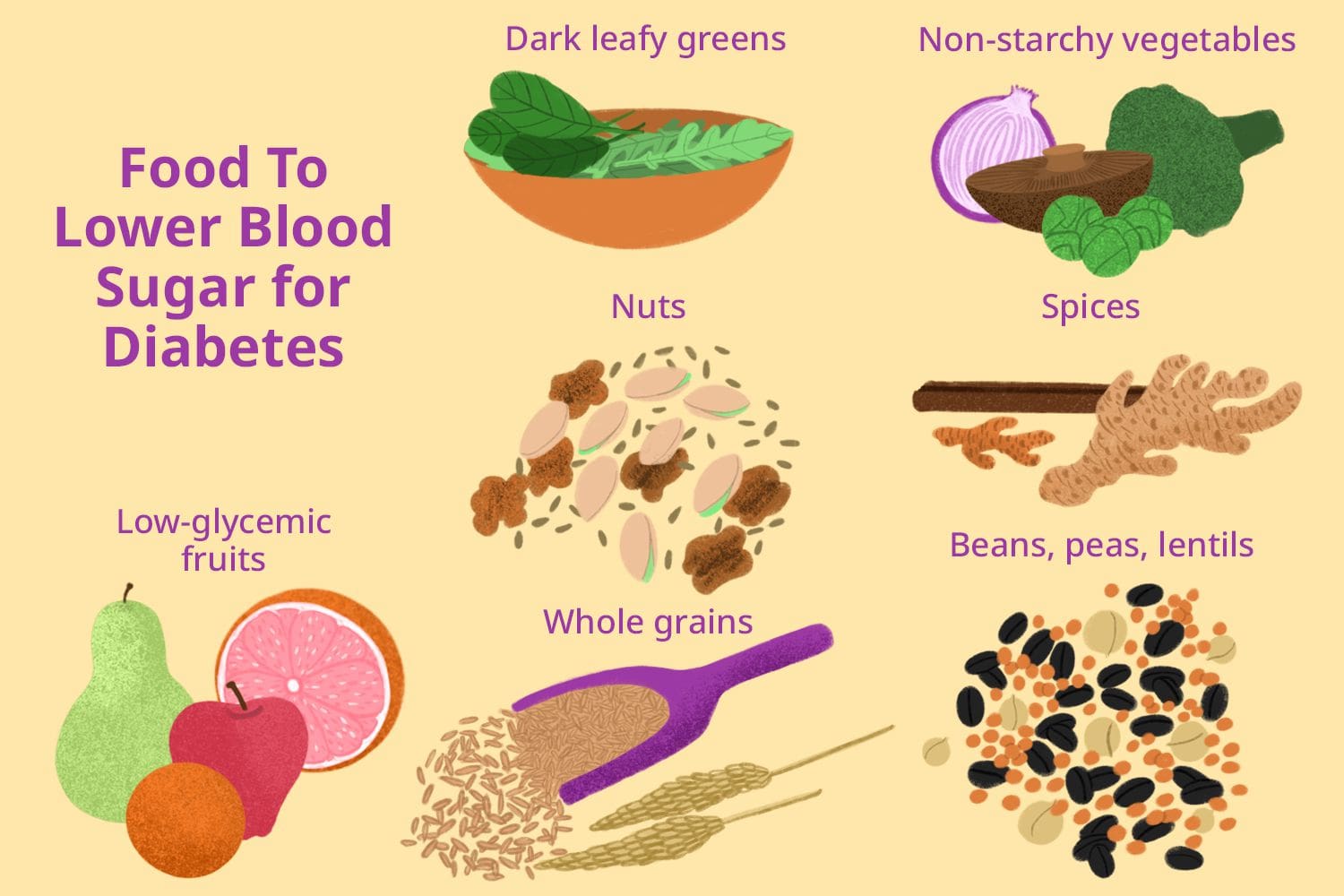Diabetes is a chronic condition that affects millions of people worldwide. It is characterized by the body’s inability to properly regulate blood sugar levels, leading to high levels of glucose in the bloodstream. This can have serious consequences, such as damage to organs and tissues, if left unmanaged. While traditional treatment methods for diabetes often involve medication and insulin therapy, there is growing interest in exploring alternative approaches, such as dietary changes. In recent years, the vegan diet has gained popularity for its potential health benefits, including its potential role in managing diabetes and blood sugar levels. In this article, we will delve into the science behind the vegan diet and its potential effects on diabetes, as well as provide practical tips for incorporating this lifestyle into diabetes management. Whether you are someone living with diabetes or a healthcare professional looking to learn more, this article will serve as a valuable resource in understanding the role of a vegan diet in managing diabetes and blood sugar levels.
Plant-based diet can improve insulin sensitivity.
Numerous studies have shown that adopting a plant-based diet can have a positive impact on insulin sensitivity, making it an effective dietary approach for managing diabetes and blood sugar levels. Plant-based diets are typically rich in fiber, low in saturated fats, and abundant in whole grains, fruits, vegetables, legumes, and nuts. These dietary components work together to provide essential nutrients, antioxidants, and phytochemicals that promote better insulin function and glucose metabolism. Furthermore, plant-based diets have been associated with weight loss, reduced inflammation, and improved cardiovascular health, all of which contribute to enhanced insulin sensitivity. Incorporating plant-based meals into a diabetes management plan may offer individuals an additional tool in their efforts to regulate blood sugar levels and improve overall health.

Lowers risk of developing diabetes.
Consuming a vegan diet has been linked to a lower risk of developing diabetes. Research has shown that following a plant-based diet can help improve insulin sensitivity, reduce insulin resistance, and lower fasting blood sugar levels. The high fiber content of plant-based foods promotes satiety and helps regulate blood sugar levels by slowing down the absorption of glucose. Additionally, plant-based diets are typically low in saturated fats and high in antioxidants, which can protect against oxidative stress and inflammation, both of which are risk factors for developing diabetes. Incorporating a vegan diet into one’s lifestyle can be an effective strategy in reducing the likelihood of developing diabetes and maintaining optimal blood sugar control.
Reduces blood sugar levels naturally.

A key advantage of adopting a vegan diet for managing diabetes and blood sugar levels is its ability to naturally reduce blood sugar levels. Plant-based foods are generally low in glycemic index, meaning they have a smaller impact on blood sugar levels compared to high-carbohydrate and processed foods. Fruits, vegetables, whole grains, and legumes provide essential nutrients and fiber that help regulate blood sugar by slowing down its absorption into the bloodstream. Additionally, plant-based diets are typically rich in antioxidants, which can help protect against cellular damage caused by high blood sugar levels. By incorporating a variety of nutrient-dense plant-based foods into your diet, you can effectively lower and maintain healthy blood sugar levels, contributing to better overall diabetes management.
High-fiber foods help stabilize blood sugar.
Focusing on high-fiber foods is a key aspect of managing blood sugar levels in a vegan diet. Fiber plays an important role in stabilizing blood sugar because it slows down the absorption of glucose into the bloodstream. This slower digestion process prevents spikes and crashes in blood sugar, helping to maintain a more balanced and steady glucose level. High-fiber foods such as whole grains, fruits, vegetables, and legumes are excellent choices for individuals with diabetes as they provide a steady release of energy while promoting feelings of fullness. Incorporating these fiber-rich foods into your vegan diet can help support stable blood sugar levels and contribute to improved diabetes management.
Vegan meals can improve heart health.

In addition to its benefits for managing blood sugar levels, adopting a vegan diet can also have a positive impact on heart health. Numerous studies have shown that plant-based diets, which are rich in fruits, vegetables, whole grains, and legumes, can help reduce the risk of cardiovascular diseases. The absence of animal products in a vegan diet means a lower intake of saturated fats and cholesterol, which are known to contribute to heart problems. Instead, plant-based meals provide essential nutrients like fiber, antioxidants, and healthy fats that promote cardiovascular health. Furthermore, vegan diets have been associated with lower blood pressure, improved cholesterol levels, and a reduced risk of developing heart disease. By embracing vegan meals, individuals can take proactive steps towards improving their heart health and overall well-being.
Incorporating more whole grains beneficial.
Incorporating more whole grains into a vegan diet can offer numerous benefits for managing diabetes and blood sugar levels. Whole grains, such as brown rice, quinoa, and oats, are rich in fiber, which slows down the absorption of glucose into the bloodstream. This helps to prevent spikes in blood sugar levels and promotes more stable insulin response. Additionally, the complex carbohydrates found in whole grains provide sustained energy and help individuals feel fuller for longer periods, reducing the temptation to indulge in unhealthy snacks or overeat. The high fiber content of whole grains also aids in improving digestion and maintaining a healthy weight, which are crucial factors in managing diabetes. By including a variety of whole grains in their vegan meals, individuals can enhance their ability to control blood sugar levels and support overall health.
Reducing processed foods is key.
In managing diabetes and blood sugar levels, reducing processed foods plays a crucial role. Processed foods are often high in added sugars, unhealthy fats, and refined carbohydrates, all of which can contribute to unstable blood sugar levels. By opting for whole, unprocessed foods, individuals can minimize their intake of these harmful ingredients and promote better glycemic control. Whole foods, such as fruits, vegetables, legumes, and nuts, provide essential nutrients without the added sugars and artificial additives commonly found in processed foods. Furthermore, these unprocessed options are typically higher in fiber, which aids in regulating blood sugar levels and promoting satiety. By making a conscious effort to minimize processed food consumption and focus on whole, nutritious choices, individuals can greatly support their diabetes management and overall health.
Consult with doctor for guidance.

For individuals considering incorporating a vegan diet into their diabetes management plan, it is essential to consult with a healthcare professional, such as a doctor or registered dietitian, for guidance. While a vegan diet can offer numerous health benefits, including improved blood sugar control and weight management, it is crucial to ensure that all nutritional needs are met. A healthcare professional can provide personalized advice, taking into account factors such as individual medical history, current medications, and specific nutritional requirements. They can help tailor a vegan diet plan that includes a variety of plant-based protein sources, adequate intake of essential nutrients like vitamin B12, iron, and omega-3 fatty acids, and proper carbohydrate and calorie management. Consulting with a healthcare professional will ensure that the transition to a vegan diet is done safely and effectively, supporting optimal diabetes management and overall well-being.
In conclusion, incorporating a vegan diet into diabetes management has shown promising results in improving blood sugar levels and reducing the risk of complications. However, it is important to consult with a healthcare professional and make individualized dietary plans based on specific needs and medical conditions. With proper guidance and education, a vegan diet can be a valuable tool in managing diabetes and maintaining overall health. As always, listen to your body and prioritize your well-being when making any changes to your diet.
FAQ
How does a vegan diet help in managing diabetes and regulating blood sugar levels?
A vegan diet can help manage diabetes and regulate blood sugar levels due to its emphasis on whole plant-based foods. Plant-based diets are typically high in fiber, which can slow down the absorption of sugar and prevent sharp spikes in blood glucose levels. Additionally, a vegan diet is low in saturated fat and cholesterol, which can improve insulin sensitivity and reduce the risk of developing type 2 diabetes. Moreover, plant-based diets are rich in antioxidants and anti-inflammatory compounds, which can help reduce inflammation and improve overall blood sugar control. However, it’s important to work with a healthcare professional to ensure adequate nutrient intake and monitor blood sugar levels.
What are some key nutrients that are important for diabetics following a vegan diet?
Some key nutrients that are important for diabetics following a vegan diet include protein, fiber, omega-3 fatty acids, calcium, vitamin D, vitamin B12, and magnesium. Protein is essential for maintaining blood sugar levels and supporting muscle health. Fiber helps regulate blood sugar levels and aids in digestion. Omega-3 fatty acids have anti-inflammatory properties and can help reduce the risk of heart disease. Calcium and vitamin D are important for bone health. Vitamin B12 is crucial for nerve function and energy production. Magnesium helps regulate blood sugar levels and supports overall health. It is important for diabetics following a vegan diet to ensure they get these nutrients through plant-based sources or supplements.
Are there any specific challenges or considerations for diabetics who choose to follow a vegan diet?
Yes, there are specific challenges and considerations for diabetics who choose to follow a vegan diet. One key challenge is ensuring a balanced intake of nutrients, particularly protein, vitamins B12 and D, and omega-3 fatty acids, which are predominantly found in animal products. Diabetics also need to carefully manage their carbohydrate intake, as a vegan diet may include high amounts of carbohydrates from sources such as grains, fruits, and legumes. Monitoring blood sugar levels and working with a healthcare provider or registered dietitian can help diabetics navigate these challenges and ensure proper nutrition and blood sugar control.
Can a vegan diet alone be sufficient in managing diabetes, or is medication still necessary?
While a vegan diet can be beneficial in managing diabetes by promoting weight loss, improving insulin sensitivity, and reducing the risk of heart disease, medication may still be necessary for some individuals. The effectiveness of a vegan diet in managing diabetes depends on various factors, including the severity of the condition, individual response to dietary changes, and overall health status. It is important for individuals with diabetes to work closely with their healthcare team to determine the best course of action, which may include a combination of medication and dietary modifications.
Are there any specific food groups or ingredients that diabetics should be cautious of when following a vegan diet?
Diabetics following a vegan diet should be cautious of high-carbohydrate foods, including refined grains, sugary fruits, and starchy vegetables. These can cause a rapid rise in blood sugar levels. Additionally, processed vegan foods like vegan desserts, plant-based meat substitutes, and packaged snacks may contain added sugars and unhealthy fats. It is important for diabetics to focus on consuming low-glycemic index foods, such as non-starchy vegetables, legumes, whole grains, and healthy fats like avocados and nuts. Consulting with a registered dietitian who specializes in plant-based diets can provide personalized guidance for diabetics on a vegan diet.















































